Sunflower seeds, often seen as a simple snack or salad topping, pack a powerful nutritional punch. These tiny seeds are rich in essential vitamins, minerals, healthy fats, and antioxidants, making them a go-to food for improving overall health. But did you know they can also work wonders for your skin?
In recent years, skincare enthusiasts have begun incorporating sunflower seeds into their routines, acknowledging the significant role they play in promoting healthy, glowing skin. Whether you consume them directly or use them in oils and skin care products, sunflower seeds offer numerous benefits that can contribute to your skin’s health.
In this article, we will explore how sunflower seeds can enhance your skin’s appearance and overall vitality, focusing on their key nutritional components and the specific ways they support skin health.
Table of Contents
- Introduction
- Nutritional Benefits of Sunflower Seeds for Skin
- Antioxidant Properties and Their Impact on Skin Health
- Enhancing Skin Elasticity with Sunflower Seeds
- Hydration and Moisturization Benefits
- Reducing Inflammation and Promoting Even Skin Tone
- Supporting Skin Repair and Regeneration
- Sunflower Seeds for Hair Health
- Promoting Hair Growth and Strengthening Follicles
- Nourishing the Scalp and Preventing Hair Loss
- DIY Recipes Using Sunflower Seeds for Skin and Hair
- Conclusion
- Frequently Asked Questions
Nutritional Benefits of Sunflower Seeds for Skin
Sunflower seeds are an exceptional source of nutrients that play a vital role in nourishing and maintaining healthy skin. Packed with vitamins, minerals, and antioxidants, these seeds offer a variety of benefits for your skin’s appearance and function. Let’s break down some of the key nutrients found in sunflower seeds and how they contribute to skin health.
1. Rich in Vitamin E
One of the standout features of sunflower seeds is their high vitamin E content. Vitamin E is a powerful antioxidant that helps protect the skin from oxidative damage caused by free radicals. This can slow down the ageing process and prevent premature wrinkles. It also aids in reducing skin inflammation and redness, promoting a more even and youthful complexion.
Vitamin E's antioxidant properties help neutralize UV rays and environmental pollutants that can damage the skin. Regular consumption of sunflower seeds, which are rich in this vital vitamin, can support long-term skin health and protection.
2. High in Healthy Fats
Sunflower seeds are rich in unsaturated fats, particularly polyunsaturated fats like omega-6 fatty acids. These fats play a crucial role in maintaining the skin’s natural barrier, ensuring it retains moisture and remains hydrated. Healthy fats also help reduce skin dryness, irritation, and inflammation, making them an excellent addition to your diet if you suffer from conditions like eczema or psoriasis.
In addition, omega-6 fatty acids promote collagen production, which helps maintain skin elasticity and firmness. Collagen is the protein responsible for keeping the skin firm and supple, so maintaining optimal collagen levels is essential for youthful-looking skin.
3. Zinc for Skin Repair
Sunflower seeds are also a great source of zinc, a mineral crucial for skin health. Zinc plays a vital role in the body’s ability to heal and repair skin tissue. It helps with the regeneration of skin cells, which is essential for wound healing, reducing acne breakouts, and managing scarring. Zinc also supports the immune system, helping the skin to fight off infections and inflammation.
If you're prone to acne or other skin conditions, ensuring adequate zinc intake from sunflower seeds can assist in managing these issues effectively. Zinc’s role in reducing inflammation and promoting healthy cell turnover makes it a valuable nutrient for anyone looking to improve their skin’s texture and appearance.
4. Selenium to Combat Skin Aging
Another essential mineral found in sunflower seeds is selenium. Selenium acts as a powerful antioxidant that works alongside vitamin E to protect the skin from oxidative stress. It helps prevent skin aging, and sun damage, and even supports skin elasticity, keeping your skin looking young for longer. Studies have shown that selenium can reduce the formation of fine lines and wrinkles, making it an important player in any anti-ageing skincare routine.
Selenium also plays a role in reducing the impact of UV radiation on the skin, further supporting its ability to maintain a youthful appearance and protect against harmful environmental factors.
5. Magnesium for Skin Tone and Texture
Magnesium, a mineral often overlooked in skincare discussions, is found in abundant amounts in sunflower seeds. Magnesium helps maintain skin hydration and improves skin texture by enhancing its natural barrier. It also supports the production of essential skin proteins, such as collagen and elastin, which contribute to a smoother, more even skin tone.
Additionally, magnesium helps relax the muscles beneath the skin, reducing the appearance of tension and stress lines. It promotes blood circulation, which helps deliver oxygen and nutrients to the skin, enhancing its overall radiance and health.
Antioxidant Properties and Their Impact on Skin Health
Sunflower seeds are a powerhouse of antioxidants, which play a crucial role in promoting skin health. Antioxidants are compounds that neutralize harmful free radicals in the body, reducing oxidative stress and preventing cellular damage. The primary antioxidants in sunflower seeds include vitamin E, selenium, and flavonoids. These nutrients help protect the skin from environmental damage caused by factors like pollution, UV radiation, and poor lifestyle habits.
Vitamin E, in particular, is known for its skin-nourishing properties. It helps repair and maintain skin cells, preventing premature aging and the formation of wrinkles. By reducing oxidative stress, vitamin E protects skin cells from damage and maintains the skin's youthful appearance. Selenium, another key antioxidant found in sunflower seeds, has anti-inflammatory properties that can calm irritated skin and reduce redness, providing relief to individuals with sensitive or inflamed skin.
Research has shown that a diet rich in antioxidants, like those from sunflower seeds, can significantly improve skin tone, texture, and overall health. Sunflower seeds are not only a great addition to your diet for improving your skin from the inside out, but they can also be applied topically in homemade face masks and creams to directly benefit the skin. By providing a natural, plant-based source of antioxidants, sunflower seeds are a valuable ingredient in promoting radiant, healthy skin.
Enhancing Skin Elasticity with Sunflower Seeds
Skin elasticity refers to the ability of the skin to stretch and return to its original shape. As we age, the production of collagen and elastin, two proteins responsible for skin firmness and elasticity, slows down. This leads to sagging skin, wrinkles, and a loss of youthful volume. However, sunflower seeds can help combat this by promoting collagen production and improving overall skin resilience.
Sunflower seeds are an excellent source of zinc, an essential mineral that plays a pivotal role in collagen synthesis. Zinc aids in the formation of collagen fibers, which help maintain the skin's structure and elasticity. Additionally, sunflower seeds contain healthy fats, such as omega-6 fatty acids, which support skin hydration and contribute to a plump, supple appearance. By incorporating sunflower seeds into your diet, you can boost the production of collagen, enhancing the skin’s elasticity and making it appear firmer and more toned.
Furthermore, the high vitamin E content in sunflower seeds helps protect the skin's connective tissue. It strengthens the skin's outer layer, preventing sagging caused by weakened tissue. Regular consumption of sunflower seeds not only nourishes the skin from the inside but also helps maintain its structural integrity, providing a more youthful, smooth, and elastic appearance.
Incorporating sunflower seeds into your daily diet, or using them in topical skincare products, can help slow down the signs of ageing by promoting elasticity and firmness. Whether enjoyed as a snack or added to salads and smoothies, sunflower seeds offer an easy and delicious way to support your skin's health and maintain its youthful appearance.
Hydration and Moisturization Benefits
Proper hydration and moisturization are essential for maintaining healthy skin, especially when dealing with dryness, irritation, or signs of ageing. Hydrating the skin refers to increasing the water content within the skin layers, while moisturization focuses on locking in that water to prevent it from evaporating.
Hydration plays a crucial role in maintaining the skin's elasticity and smoothness. When your skin is properly hydrated, it appears plumper, healthier, and more youthful. On the other hand, dehydrated skin can look dull, dry, and even wrinkled, as lack of water can lead to the breakdown of collagen, causing premature signs of ageing.
Moisturization works hand-in-hand with hydration by forming a barrier that prevents water from escaping the skin. This helps keep the skin soft and smooth, reducing the chances of dryness and irritation. Moisturizers can be formulated with various ingredients like oils, humectants, and emollients, which help to attract and lock in moisture, keeping the skin nourished for longer periods.
Together, hydration and moisturization work to balance the skin’s needs, ensuring a healthy, glowing complexion. Products like hydrating serums, facial oils, and moisturizers can enhance your skin’s ability to retain moisture and stay well-hydrated.
Reducing Inflammation and Promoting Even Skin Tone
Inflammation is one of the primary contributors to a variety of skin concerns, including redness, irritation, acne, and uneven skin tone. Chronic inflammation can cause the skin to become sensitive and reactive, leading to flare-ups and discolouration. Fortunately, certain skincare ingredients are known for their anti-inflammatory properties, which can help reduce redness and calm irritated skin.
Key anti-inflammatory ingredients include aloe vera, green tea extract, chamomile, and turmeric. These natural compounds are known to soothe the skin, reduce swelling, and alleviate discomfort caused by inflammation. Aloe vera, for example, is particularly effective for calming sunburn or irritation, while green tea extract has antioxidant properties that can combat inflammation caused by oxidative stress.
When inflammation is reduced, the skin has a better chance to heal and regenerate, leading to a more even tone and texture. Promoting an even skin tone involves not only reducing inflammation but also incorporating ingredients that help fade dark spots and hyperpigmentation. Vitamin C, niacinamide, and liquorice extract are excellent choices for brightening the skin and evening out pigmentation.
Together, inflammation-reducing ingredients and brightening agents work synergistically to restore balance to the skin, helping it appear more uniform and radiant. This can be especially beneficial for individuals struggling with conditions like rosacea, acne scars, or uneven skin tone from sun exposure.
Supporting Skin Repair and Regeneration with Sunflower Seeds
Sunflower seeds are more than just a nutritious snack—they are also a powerful ally in promoting skin health. Rich in vitamins, minerals, and healthy fats, they help repair and regenerate skin cells, leading to smoother, healthier skin.
-
Vitamin E for Skin Protection
Sunflower seeds are an excellent source of vitamin E, a fat-soluble antioxidant that plays a crucial role in skin health. Vitamin E helps protect the skin from oxidative stress caused by free radicals, which are a major contributor to premature aging. By reducing oxidative damage, vitamin E supports the skin’s ability to repair itself, regenerate new cells, and maintain a youthful appearance. -
Healthy Fats for Skin Moisture
The healthy fats in sunflower seeds, particularly omega-6 fatty acids, are essential for maintaining the skin’s natural barrier. This barrier helps lock in moisture and keep harmful pollutants out, preventing dry, flaky skin. Regular consumption of sunflower seeds can help the skin stay hydrated, plump, and soft. -
Boosting Collagen Production
Collagen is a key protein that provides structure and elasticity to the skin. Sunflower seeds contain zinc, which is essential for collagen synthesis. Zinc also accelerates the healing process of the skin, making it an important mineral for skin regeneration after damage or injury. This can help minimize scarring and improve the overall texture of the skin. -
Reducing Inflammation
Skin conditions like acne, eczema, and psoriasis are often linked to inflammation. Sunflower seeds contain anti-inflammatory compounds, such as vitamin E and phenolic acids, which can help reduce skin inflammation. Regular consumption can calm irritated skin and reduce flare-ups, leading to a clearer complexion. -
Promoting a Radiant Glow
The blend of nutrients in sunflower seeds, including vitamins B and E, magnesium, and selenium, helps nourish the skin from the inside out. These nutrients work together to promote a healthy glow by supporting the skin’s natural functions, reducing dullness, and boosting circulation to the skin. This can result in a brighter, more radiant complexion over time.
Sunflower Seeds for Hair Health
Sunflower seeds are not only great for your skin but also for your hair. Packed with vital nutrients, including vitamins, minerals, and essential fatty acids, they help nourish the scalp, support healthy hair growth, and maintain strong, shiny locks.
-
Rich in Vitamin E for Hair Protection
Just like it does for the skin, vitamin E in sunflower seeds protects the hair from oxidative damage caused by free radicals. This vitamin helps improve blood circulation to the scalp, promoting healthier, stronger hair follicles. It also helps maintain the hair’s natural moisture balance, preventing dryness and brittleness that can lead to split ends and breakage. -
Supporting Hair Growth with Zinc
Zinc, another key nutrient found in sunflower seeds, is essential for healthy hair growth. It aids in the production of proteins like keratin, which is the main structural component of hair. Zinc also helps regulate hormone levels and supports a healthy scalp, reducing the risk of hair thinning and hair loss. Consuming sunflower seeds can help ensure that your hair follicles receive the necessary nutrients to thrive. -
Omega-6 Fatty Acids for Strong, Shiny Hair
Sunflower seeds are an excellent source of omega-6 fatty acids, which are important for maintaining the health of the hair follicles and the scalp. Omega-6 fatty acids support the hair’s natural moisture retention, keeping it hydrated and shiny. These fats also reduce inflammation in the scalp, which can prevent issues like dandruff and hair thinning caused by dry, irritated skin. -
Promoting Scalp Health with Magnesium
A healthy scalp is key to growing healthy hair, and magnesium plays a vital role in maintaining scalp health. Sunflower seeds are rich in magnesium, which helps keep the scalp hydrated, improves blood flow, and prevents the buildup of dead skin cells that can block hair follicles. A nourished scalp leads to better hair growth and prevents conditions like dandruff or excessive hair shedding. -
Preventing Hair Loss with Selenium
Selenium, a powerful antioxidant found in sunflower seeds, helps prevent hair loss by protecting the hair from free radical damage. It also supports thyroid function, which is closely linked to hair health. A balanced thyroid helps regulate hair growth cycles, and by including sunflower seeds in your diet, you can support this process and reduce the risk of hair thinning or loss.
Promoting Hair Growth and Strengthening Follicles
When it comes to achieving healthy, voluminous hair, promoting hair growth and strengthening the follicles are crucial factors. Healthy hair starts at the root, where the hair follicles play a key role in hair production. Strengthening these follicles ensures they remain active and productive, which is vital for continuous hair growth. Here are some effective strategies to boost hair growth and follicle strength:
1. Nutrition is Key
Your hair follicles require a variety of nutrients to grow healthy hair. A diet rich in vitamins and minerals is essential for promoting hair growth. Key nutrients include:
-
Vitamin A: This vitamin is vital for the production of sebum, an oily substance produced by the scalp that nourishes hair follicles.
-
Biotin: Known as Vitamin H, biotin supports the production of keratin, a protein that forms hair strands.
-
Vitamin E: It increases blood circulation to the scalp, helping to nourish hair follicles.
-
Omega-3 Fatty Acids: These healthy fats found in foods like fish and nuts help maintain a healthy scalp environment and promote hair growth.
By eating a balanced diet with these vitamins and minerals, you can help your hair follicles work efficiently, encouraging healthier and thicker hair.
2. Massage and Stimulate the Scalp
Regularly massaging the scalp can increase blood circulation to the hair follicles, promoting healthier hair growth. Gentle, circular motions with your fingertips can help stimulate the scalp, leading to better nutrient delivery to the follicles. Adding essential oils like rosemary or peppermint can enhance this effect, as these oils are believed to boost circulation and follicle health.
3. Use Hair Growth Products with Proven Ingredients
Several products on the market are specifically formulated to promote hair growth. Ingredients like minoxidil, caffeine, and keratin are known to strengthen hair follicles and encourage growth. When choosing a product, look for those containing these active ingredients and avoid harsh chemicals that may damage the scalp and hair.
4. Reduce Stress
Stress is a common culprit for hair loss, often causing conditions like telogen effluvium, where hair falls out more rapidly due to stress-induced changes in the hair growth cycle. To combat this, practice stress management techniques such as yoga, meditation, or deep breathing exercises. These can help reduce the negative impact stress has on your hair follicles, allowing them to maintain their growth cycle.
Nourishing the Scalp and Preventing Hair Loss
Nourishing your scalp is just as important as nurturing your hair. A healthy scalp provides the ideal environment for strong and healthy hair to grow. If your scalp is unhealthy, it can lead to issues like dryness, dandruff, or excess oil production, all of which can result in hair thinning or loss. Below are some effective ways to nourish the scalp and prevent hair loss:
1. Regular Scalp Cleansing
Maintaining a clean scalp is crucial for preventing clogged hair follicles, which can inhibit hair growth and lead to hair loss. Use a gentle shampoo that suits your hair type to cleanse your scalp and remove any buildup of oils, dirt, or product residues. Opt for products with natural ingredients that promote scalp health, such as aloe vera or tea tree oil, which are known for their soothing and antibacterial properties.
2. Hydrate the Scalp
Just like your hair, your scalp needs hydration. If your scalp becomes dry, it can lead to irritation and flakiness, which may cause hair to become weak or fall out. You can hydrate your scalp using natural oils like coconut oil, argan oil, or jojoba oil. These oils penetrate the scalp, providing moisture and nourishment while also strengthening hair follicles. Apply these oils gently and leave them on for at least 30 minutes before washing them out.
3. Avoid Harsh Treatments
Excessive use of chemical treatments, hot tools, or harsh hair products can lead to scalp damage, weakening the hair follicles and causing hair loss. Minimize the use of heat styling tools and avoid coloring your hair frequently to prevent damage. When using hair products, choose those free from sulfates, parabens, and alcohol, which can dry out and irritate the scalp.
4. Protect Your Scalp from Sun Damage
Much like the skin, your scalp is susceptible to damage from UV rays. Sunburn on the scalp can lead to dryness and weakened hair follicles. If you're going to be exposed to the sun for long periods, wear a hat or apply a scalp sunscreen to protect it from harmful UV rays. This helps prevent damage that can ultimately contribute to hair thinning and loss.
5. Strengthen with Herbal Remedies
Many herbs are known for their ability to nourish the scalp and support hair health. Ingredients like aloe vera, fenugreek, and hibiscus have been used for centuries to treat scalp conditions and promote hair growth. Aloe vera soothes irritated scalps, while fenugreek provides nourishment and strengthens hair. Using herbal oils or masks containing these ingredients can help keep your scalp healthy and prevent hair loss.
6. Consider Your Hair Care Routine
The way you treat your hair daily impacts your scalp’s health. Avoid tight hairstyles that cause excessive tension on the hair, as this can lead to traction alopecia, a form of hair loss caused by stress on the hair follicles. Opt for loose styles and use a wide-tooth comb to detangle wet hair. Additionally, avoid over-washing your hair, as this can strip the scalp of natural oils. Washing your hair 2-3 times a week is usually sufficient for maintaining a healthy scalp.
By nourishing your scalp properly and promoting follicle strength, you can significantly reduce hair loss and encourage healthy hair growth. These proactive steps not only protect your hair but also create the optimal conditions for it to thrive, leading to fuller, stronger locks over time.
DIY Recipes Using Sunflower Seeds for Skin and Hair
Sunflower seeds are not just a healthy snack but also a great addition to your skincare and haircare routine. Packed with essential vitamins, minerals, and antioxidants, sunflower seeds can help nourish and rejuvenate your skin and hair. Here are some simple DIY recipes to incorporate sunflower seeds into your beauty regimen.
1. Sunflower Seed Face Scrub
A gentle face scrub can help exfoliate dead skin cells, leaving your skin smooth and refreshed. Sunflower seeds, with their mild texture, are perfect for this.
Ingredients:
-
2 tablespoons of crushed sunflower seeds
-
1 tablespoon of honey
-
1 tablespoon of olive oil
Instructions:
-
Crush the sunflower seeds until they are coarse.
-
Mix them with honey and olive oil.
-
Apply the mixture to your face in gentle circular motions.
-
Rinse with warm water.
The honey moisturizes while the sunflower seeds exfoliate, making your skin look glowing and healthy.
2. Sunflower Seed Hair Mask
Sunflower seeds are rich in Vitamin E, which promotes healthy hair growth. This mask will nourish your scalp and make your hair soft and shiny.
Ingredients:
-
2 tablespoons of sunflower seed oil
-
1 ripe avocado
-
1 tablespoon of honey
Instructions:
-
Mash the avocado and mix it with sunflower seed oil and honey.
-
Apply this mixture to your scalp and hair, focusing on the roots and ends.
-
Leave it on for about 20 minutes and then rinse thoroughly with shampoo.
This hair mask will give your hair the nourishment it needs, making it stronger and more vibrant.
3. Sunflower Seed Lip Scrub
Sunflower seeds can also be used to create a natural lip scrub that will remove dead skin and keep your lips soft and hydrated.
Ingredients:
-
1 tablespoon of crushed sunflower seeds
-
1 tablespoon of coconut oil
-
1 teaspoon of brown sugar
Instructions:
-
Combine the crushed sunflower seeds with coconut oil and brown sugar.
-
Gently massage the scrub onto your lips in a circular motion.
-
Rinse with warm water.
Your lips will feel exfoliated, smooth, and moisturized after this scrub.
4. Sunflower Seed Soothing Toner
Sunflower seeds can help calm irritated skin and balance your skin’s pH. This toner will leave your skin feeling refreshed and hydrated.
Ingredients:
-
1 tablespoon of sunflower seed oil
-
1 cup of rose water
Instructions:
-
Mix the sunflower seed oil with the rose water.
-
Apply this mixture to your face using a cotton pad.
-
Leave it on for a few minutes before applying moisturizer.
The soothing properties of rose water, combined with the nourishing oil from sunflower seeds, will help maintain your skin’s health.
Conclusion
Incorporating sunflower seeds into your skincare and haircare routines can offer incredible benefits due to their nourishing properties. Whether you're using them as a face scrub, hair mask, lip scrub, or soothing toner, sunflower seeds help promote healthier skin and hair. Additionally, Krishival naturally offers high-quality sunflower seeds, providing a natural and healthy option for those looking to enhance their beauty from the inside out.
Frequently Asked Questions
H4 Q1. How do sunflower seeds benefit the skin?
Sunflower seeds are rich in Vitamin E, antioxidants, and essential fatty acids, which help to protect and nourish the skin. They can reduce inflammation, combat free radicals, and promote overall skin health, leaving it moisturized and glowing.
2. Can sunflower seeds help with acne?
Yes, sunflower seeds can help manage acne due to their anti-inflammatory properties. The zinc and Vitamin E in sunflower seeds reduce skin irritation, control oil production, and encourage healing, all of which contribute to clearer skin.
3. Are sunflower seeds effective for hair growth?
Sunflower seeds contain essential nutrients such as Vitamin E, magnesium, and zinc, which promote healthy hair growth. They nourish the scalp, reduce hair loss, and improve hair texture, making your hair stronger and shinier.
4. Can I use sunflower seeds for dry skin?
Absolutely! Sunflower seeds are packed with fatty acids and Vitamin E, which deeply moisturize the skin. Incorporating them into skincare recipes can help treat dry and flaky skin, keeping it soft and hydrated.
5. Is sunflower seed oil good for hair?
Yes, sunflower seed oil is great for hair. It contains Vitamin E, which helps maintain the natural moisture balance of the scalp, preventing dryness and flakiness. It also strengthens hair, reduces breakage, and adds shine.
6. How can I make a sunflower seed face mask?
To make a simple face mask, crush sunflower seeds and mix them with honey and yogurt. Apply the paste to your face and leave it on for about 15 minutes before rinsing off. This mask will hydrate and exfoliate your skin, leaving it soft and glowing.
7. Can sunflower seeds be used as a natural sunscreen?
While sunflower seeds do contain Vitamin E, which provides some UV protection, they are not a substitute for sunscreen. It's still essential to use a broad-spectrum sunscreen to protect your skin from harmful UV rays.
8. Are sunflower seeds safe for sensitive skin? Sunflower seeds are generally safe for most skin types, including sensitive skin. However, it's always a good idea to perform a patch test before using any new ingredient, especially if you have allergies or very sensitive skin.
9. Can I use sunflower seeds for oily skin?
Yes, sunflower seeds can be beneficial for oily skin. They regulate oil production and can help reduce the appearance of clogged pores. Their non-comedogenic properties ensure they won't cause breakouts while providing moisture.
10. How often should I use sunflower seed products on my skin and hair?
For best results, use sunflower seed-based skincare products 2-3 times a week. Overuse may irritate sensitive skin or cause product buildup in hair. Always listen to your skin and hair's needs to avoid overdoing it.


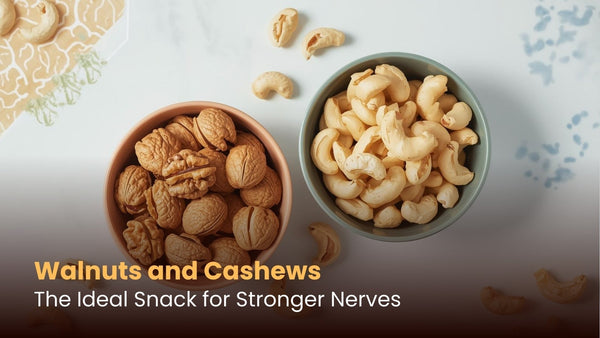


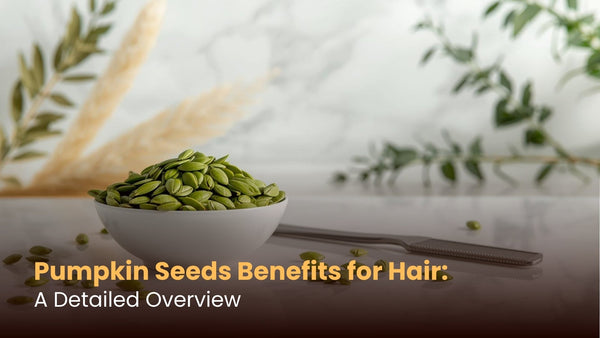

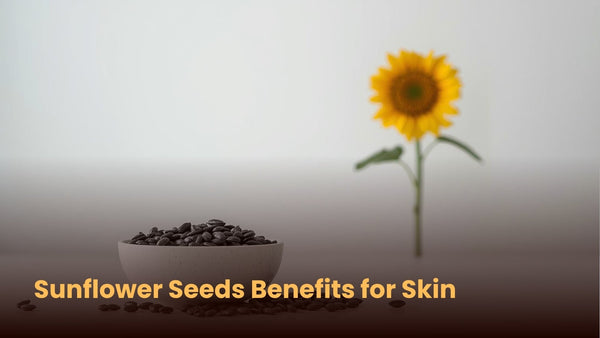

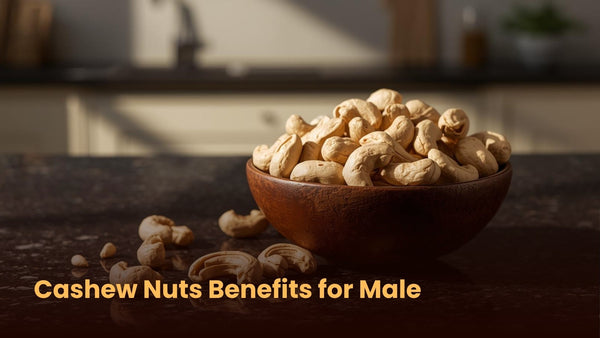
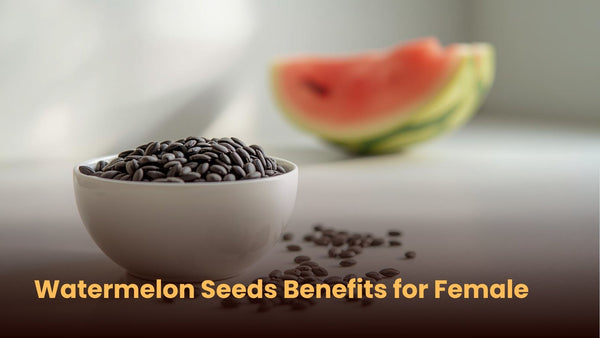
Share Your Thoughts